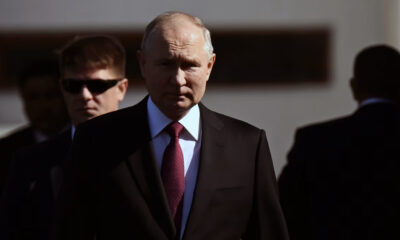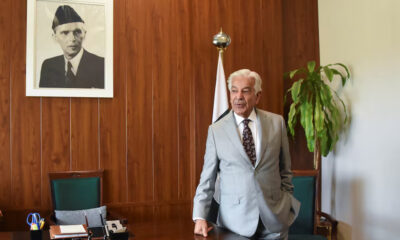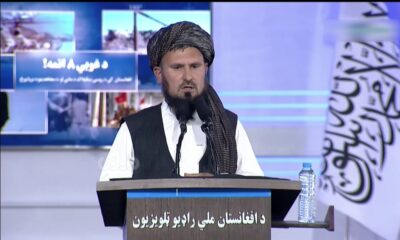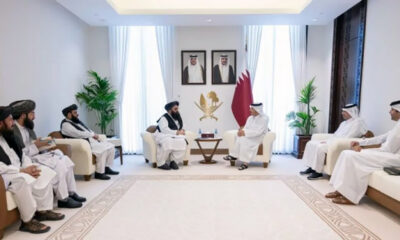Latest News
U.S. advice to banks: OK to transfer aid money to Afghanistan
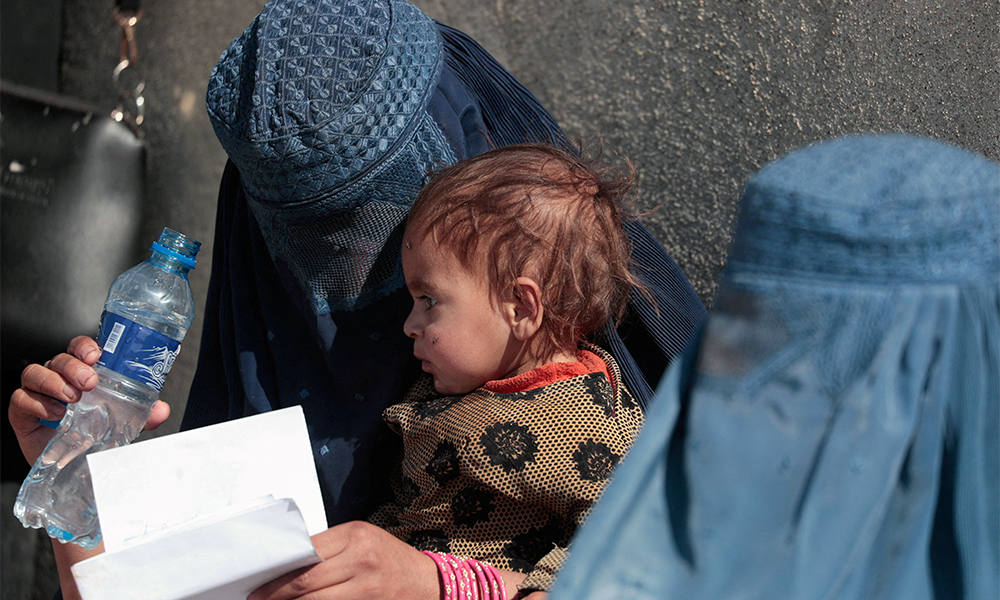
International banks can transfer money to Afghanistan for humanitarian purposes, and aid groups are allowed to pay teachers and healthcare workers at state-run institutions without fear of breaching sanctions on the Islamic Emirate of Afghanistan (IEA), the United States said on Wednesday.
The U.S. Treasury Department offered guidance on sanctions exemptions issued in September and December for humanitarian work in Afghanistan, where the United Nations says more than half the country’s 39 million people suffer extreme hunger and the economy, education and social services are facing collapse.
U.N. Secretary-General Antonio Guterres last week warned Afghanistan was “hanging by a thread.”
The IEA, seized power from Afghanistan’s internationally backed government in August. Billions of dollars in Afghan central bank reserves and international development aid were frozen to prevent it from falling into IEA hands.
International banks have been wary of Afghanistan and the United Nations and aid groups are struggling to get enough money into the country to fund operations.
The U.S. Treasury said banks can process transactions related to humanitarian operations “including clearing, settlement, and transfers through, to, or otherwise involving privately owned and state-owned Afghan depository institutions.”
It also outlined permitted transactions involving the IEA, which includes Haqqani Network. These include signing agreements to provide aid directly to the Afghan people, general aid coordination, including import administration, and sharing of office space.
“Payments of taxes, fees, or import duties to, or the purchase or receipt of permits, licenses, or public utility services from” the IEA, Haqqani Network or any entity in which they own more than 50% is authorized for humanitarian operations, the Treasury said.
It also said aid groups are allowed to ship cash to Afghanistan for humanitarian operations and can make direct payments to healthcare workers and teachers in public hospitals and schools.
Latest News
Civil war devastated Afghans more than the Soviet invasion, says Fitrat
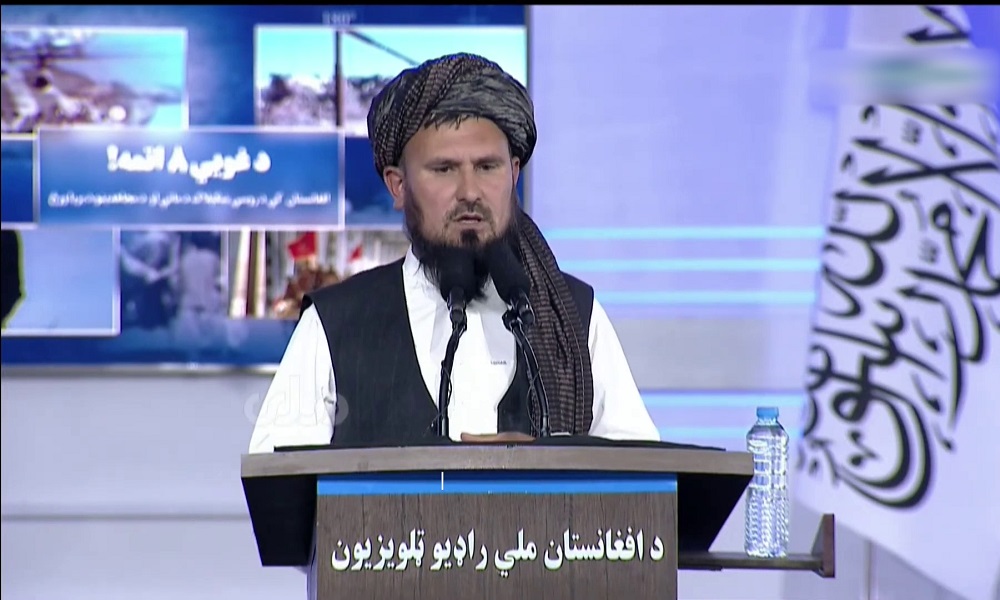
The civil war inflicted greater harm on the people of Afghanistan than the Soviet invasion, Fasihuddin Fitrat, Chief of the Army Staff of the Islamic Emirate, said on Monday
“The Soviet Red Army invasion did not make the Afghan people as miserable as the civil wars and power struggles made,” he said at a ceremony marking the 33rd anniversary of the mujahideen’s victory against the former Soviet-backed regime.
Fitrat warned that if someone is thinking of occupying Afghanistan using those who have fled the country, the Afghan people are ready to fight against them even if takes thousands of years.
“No matter how they impose war on the people of Afghanistan, the people have the courage and heroism,” he said. “Their honor will never allow them to be controlled by someone else. They will fight against them. They have fought for four and a half decades and are ready to fight for thousands more. If anyone thinks of occupying our country, they will fight against them.”
Acting Minister of Borders and Tribal Affairs, Alhaji Mullah Noorullah Noori also stressed that Afghanistan will soon will compete with other countries in political, economic and security sectors.
“The day will come when Afghanistan will compete with the world’s major countries in every field, politically, economically, security,” he said.
Acting Minister of Information and Culture Khairullah Khairkhwa called on the officials of the Islamic Emirate to refrain from “power worship,” warning that it would lead to the collapse of the government.
“If, God forbid, we revive the past and there is power worship here again and we try to increase our influence, the regime will collapse and the people will become divided,” he said.
At the ceremony, the Chief of Staff of Army also stressed the dignified return of refugees from neighboring countries, adding that humiliating them is unacceptable for the Islamic Emirate.
Latest News
Qatar’s Prime Minister meets with Afghanistan’s foreign minister
According to Gulf Times, the two officials reviewed the latest developments in Afghanistan and discussed ways to support the Afghan people.
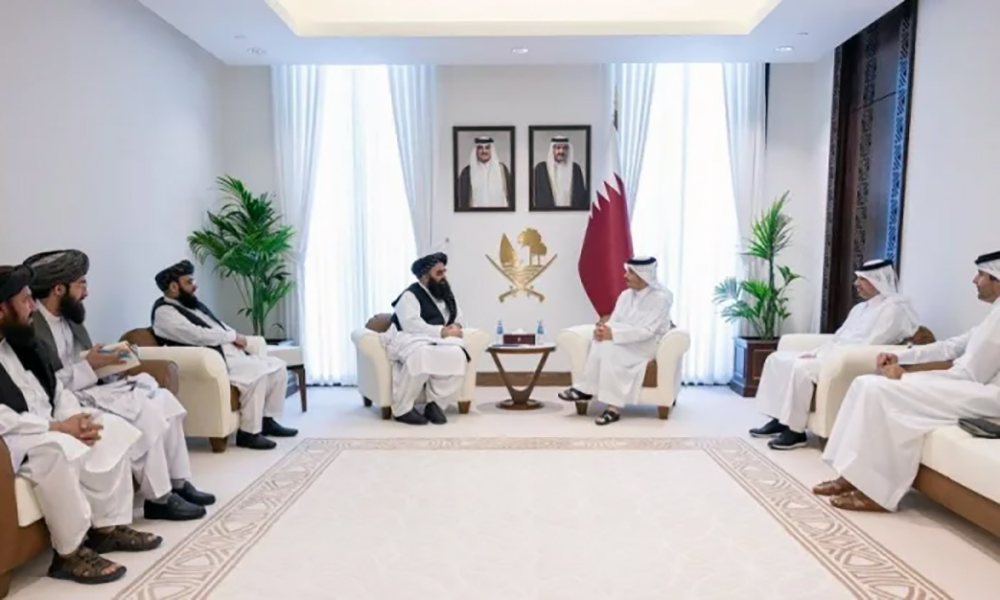
Qatar’s Prime Minister and Minister of Foreign Affairs Sheikh Mohammed bin Abdulrahman bin Jassim Al-Thani met with Afghanistan’s Acting Minister of Foreign Affairs Amir Khan Muttaqi who is currently visiting the country.
According to Gulf Times, the two officials reviewed the latest developments in Afghanistan and discussed ways to support the Afghan people.
Al-Thani emphasized the State of Qatar’s unwavering support for all segments of the Afghan people and its continued efforts to achieve security, stability, prosperity, and a dignified life in Afghanistan.
A source told Ariana News that Muttaqi arrived in Qatar on Sunday. No further details on his trip were given.
Latest News
WFP air services in Afghanistan may be suspended due to funding crisis
According to WFP, the organization urgently needs $10.5 million in funding to continue its relief flights in 2025.
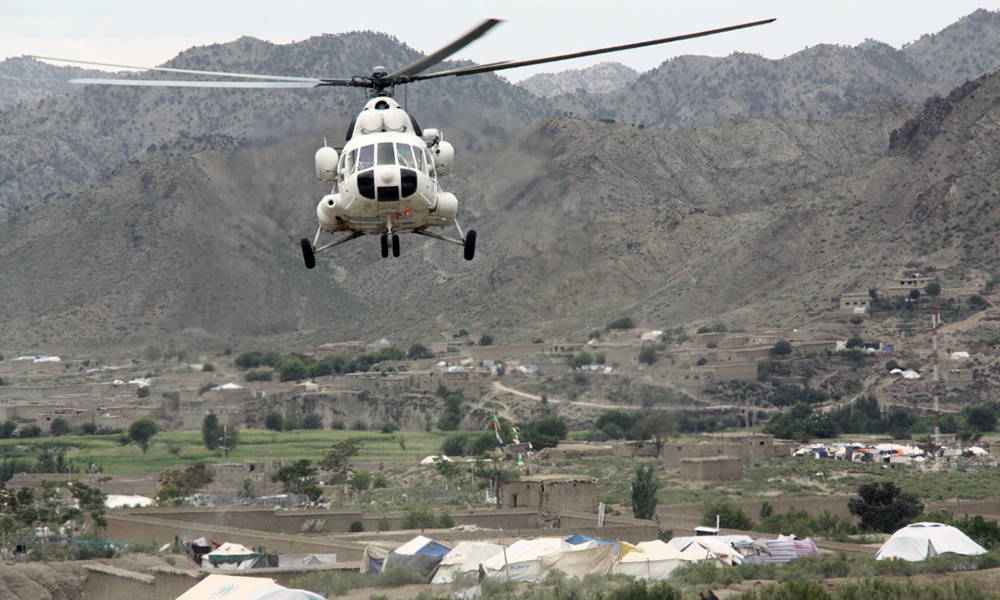
The UN’s World Food Program (WFP) in Afghanistan has announced the possible suspension of its air services in the country due to a severe shortage of funding.
WFP is one of the largest humanitarian organizations in Afghanistan and the air services have played a vital role in transporting humanitarian aid, especially to areas difficult to reach by land.
In a message posted on X, the WFP explained that in the past, when roads were blocked, air services were the only way to deliver aid to remote areas of Afghanistan. This aid included food, medicine, and other essential items that are essential for the survival of millions of people in need in Afghanistan.
According to WFP, the organization urgently needs $10.5 million in funding to continue its relief flights in 2025.
In addition, the WFP stated that humanitarian needs in Afghanistan continue to increase and millions of people across the country are dependent on humanitarian assistance.
WFP stated that if air services are stopped, it will become very difficult, if not impossible, to deliver vital aid to areas that are not accessible by road.
-

 Latest News5 days ago
Latest News5 days agoAWCC activates new site in Nangarhar’s Kuz Kunar district
-

 Latest News5 days ago
Latest News5 days agoTarig Ali Bakheet and Japan’s Deputy Foreign Minister discuss Afghanistan’s situation
-

 Business5 days ago
Business5 days agoPakistan’s deputy PM discusses Trans-Afghan Railway Line project with Uzbek FM
-
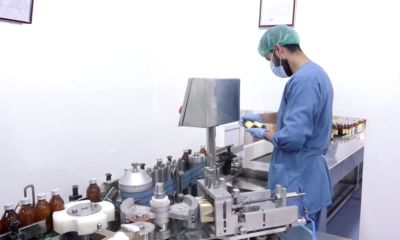
 Latest News4 days ago
Latest News4 days agoAfghanistan’s medicine output reaches 900 types: Pharma Union
-

 Latest News5 days ago
Latest News5 days agoAfghan delegation to participate in Iran’s international expo
-

 Latest News5 days ago
Latest News5 days agoWFP appeals for $25 million to help support Afghan returnees amid humanitarian crisis
-
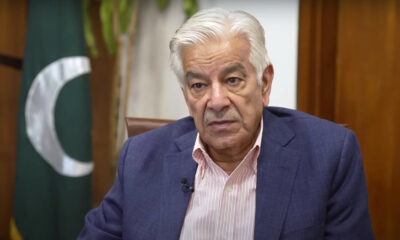
 Latest News4 days ago
Latest News4 days agoTerrorist attacks in Pakistan originate from Afghanistan: Khawaja Asif
-
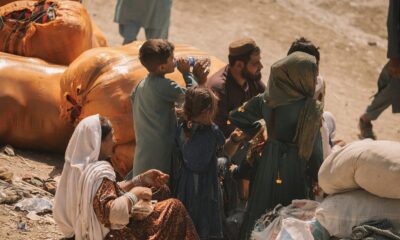
 Latest News4 days ago
Latest News4 days agoRegistered Afghan refugees must return by June 30 or face deportation: Pakistani official


